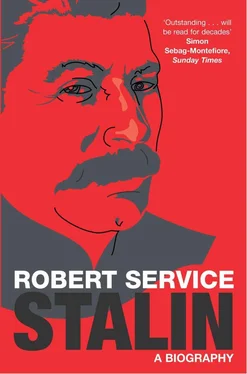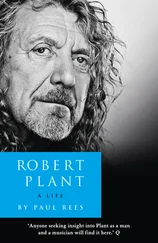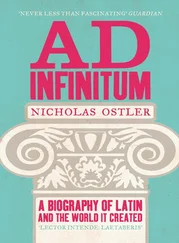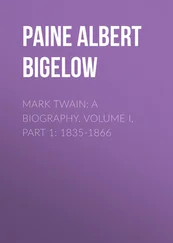Stalin, custodian-in-chief of the Soviet order, was also its detainee. In order to rule despotically through the communist dictatorship, he had to restrict his impulse to eliminate practices which inhibited the imposition of a perfect system of vertical command. Powerful though he was, his powers were not limitless. This consideration is not a fine scholarly point but helps towards an understanding of the vicissitudes of his career. To the end of his life he sought to keep the Soviet order in a condition of controlled agitation. Aiming to conserve personal despotism and party dictatorship, he strove to disrupt trends towards a stabilisation which might conflict with his larger purposes. But constraints of power existed even for Stalin.
The purposes of Stalin at any rate sprang not only from his psychological drives and practical calculations but also from his world view. Marxism was a guiding philosophy throughout his adult life. But it was not the only ingredient in his thinking. His Georgian origin, his cultural interests and his ecclesiastical training left their mark. Russian national traditions also had a growing importance, especially from the 1930s. He was not an original scholar. Far from it: his few innovations in ideology were crude, dubious developments of Marxism. Sometimes the innovations arose from political self-interest more than intellectual sincerity. But about the genuineness of Stalin’s fascination with ideas there can be no doubt. He read voraciously and actively. His insertion of nationalist themes into official Soviet ideology ought to be seen for what it was. Stalin deployed the nationalism he found congenial. This was not the nationalism of Church, peasant and village. It was not even the nationalism of the tsars; for although he extolled Ivan the Terrible and Peter the Great, he excoriated most other past rulers. Stalin’s was a Russian nationalism of the state, of technology and intolerance, of atheism, of cities, of military power. It was so idiosyncratic a compilation as to be virtually his own invention — and it overlapped substantially with Soviet Marxism as it had been developed since the death of Lenin.
Yet he continued to be pragmatic, and his ability to decide large international questions with the leaders of the world’s great powers led some historians to conclude that Stalin was a statesman in the tradition of the tsars. There was something in this. Stalin was eager to be taken seriously by American and European leaders and to secure concessions to Soviet interests at the conference table. He also strained to understand the complexities of the problems of the USSR itself in administration, economy and society. He was a ruler of great assiduity and intervened in the minutiae of policy whenever he could.
The question, however, has remained about his sanity. Stalin’s obsession with personal control was so extreme and brutal that many have pondered whether he was psychotic. Roy Medvedev, the Soviet historian–dissenter, denied that Stalin was insane. 18Robert Tucker too maintained a cautious stance and argued that Stalin, while not being clinically mad, had a personality damaged by his experiences as a child. Robert Conquest agreed but stressed the unhealthy appetite Stalin had for vengeance and murder. All this brings up the matter of the nature of the ‘enemies’ whom Stalin sought to eliminate. Were they phantoms of his imagination without existence in objective reality? Medvedev, Tucker and Conquest agree that his was a deeply maladjusted personality. Quite how peculiarly he behaved in his intimate circle has become ever clearer since the doors of the archives have opened. The atmosphere in his family in the 1920s was highly charged and the fact that his wife Nadezhda was mentally unstable made things worse. In politics he was exceptionally suspicious, vengeful and sadistic. Stalin had a gross personality disorder.
But was his behaviour merely the reflection of a Georgian upbringing? Ideas of personal dignity and revenge were widespread in his native land, especially in the rural areas. Practically every biographer has assumed that this had an influence on his subsequent career. But Georgia’s culture was neither uniform nor unchanging. Stalin imbibed ideas in Gori and Tbilisi which were rejected by others, and an exclusive ascription of his personal and political comportment to his national origins is inappropriate. The dysfunctionality of the Dzhughashvili family was remarked upon by his friends. His own odd character was worsened by his later experience of being underappreciated by his comrades in the revolutionary movement; and the tenets and practices of communism confirmed his harsher tendencies. (All leading Bolsheviks condoned the Red Terror in 1918: this was yet another reason why they tended to ignore Stalin’s extremism until the late 1920s.) He was also influenced by the books he read about previous Russian rulers, especially Ivan the Terrible; and he annotated Machiavelli’s The Prince . There were many interacting factors which contributed to Stalin’s extraordinary ferocity.
Yet although he exaggerated the strength and intent of the opposition to him, such opposition was not insignificant in its potential. There was method in Stalin’s alleged madness. Conquest and Medvedev have pointed to the existence of groupings of internal party critics. 19Getty has indicated that Stalin was unhappy with passive resistance to his policies among the party’s officials in the provinces. 20Khlevnyuk has indicated his persistent concern about past and current members of the communist central leadership. 21
This book is intended to show that Stalin’s worries went wider and deeper than his concern about internal party critics. He really did have a multitude of enemies. None of them had much chance against him. His defeated opponents gossiped against him, and some subordinates in the party formed little groups to conspire against him. There were plenty of delegates to Party Congresses who felt that his power had become overmagnified after the First Five-Year Plan of 1928–32. More broadly, outside the party, multitudes of people had reason to bear him a grudge: Bolsheviks expelled from the party; priests, mullahs and rabbis; Mensheviks and Socialist-Revolutionaries; nationalists among the non-Russians — and indeed among the Russians; peasants; even workers and soldiers. His unpopularity was as great as his power at its peak, and the fact that he fostered a cult of the individual for himself meant that no one in the country could fail to identify him as being personally responsible for the policies that had brought suffering to the country. This was a situation that was unlikely to improve in the near future. At the very moment of his political victory Stalin had much cause to be worried.
The following chapters offer a comprehensive portrait of Stalin in his time. They investigate not only what he did but also why he did it and how he was allowed to do it. He is examined simultaneously as leader, administrator, theorist, writer, comrade, husband and father. His social background, schooling, nationality and ways of work and leisure are analysed. Stalin as a psychological type also needs to be considered — and his habits of daily life as well as the large scale of his political manoeuvres and statesmanship enter the account.
The charge has been laid that such an approach runs the risk of ‘humanising’ the communist leaders. I plead guilty. Stalin carried out campaigns of carnage which have been described with words outside the lexicon of our species: monstrous, fiendish, reptilian; but the lesson to be learned from studying several of the twentieth century’s most murderous politicians is that it is wrong to depict them as beings wholly incomparable to ourselves. Not only is it wrong: it is also dangerous. If the likes of Stalin, Hitler, Mao Tse-tung and Pol Pot are represented as having been ‘animals’, ‘monsters’ or ‘killing machines’, we shall never be able to discern their successors. Stalin in many ways behaved as a ‘normal human being’. In fact he was very far from being ‘normal’. He had a vast desire to dominate, punish and butcher. Often he also comported himself with oafish menace in private. But he could also be charming; he could attract passion and admiration both from close comrades and from an immense public audience. On occasion he could be modest. He was hard-working. He was capable of kindliness to relatives. He thought a lot about the good of the communist cause. Before he started killing them, most communists in the USSR and in the Comintern judged him to be functioning within the acceptable bounds of political conduct.
Читать дальше












